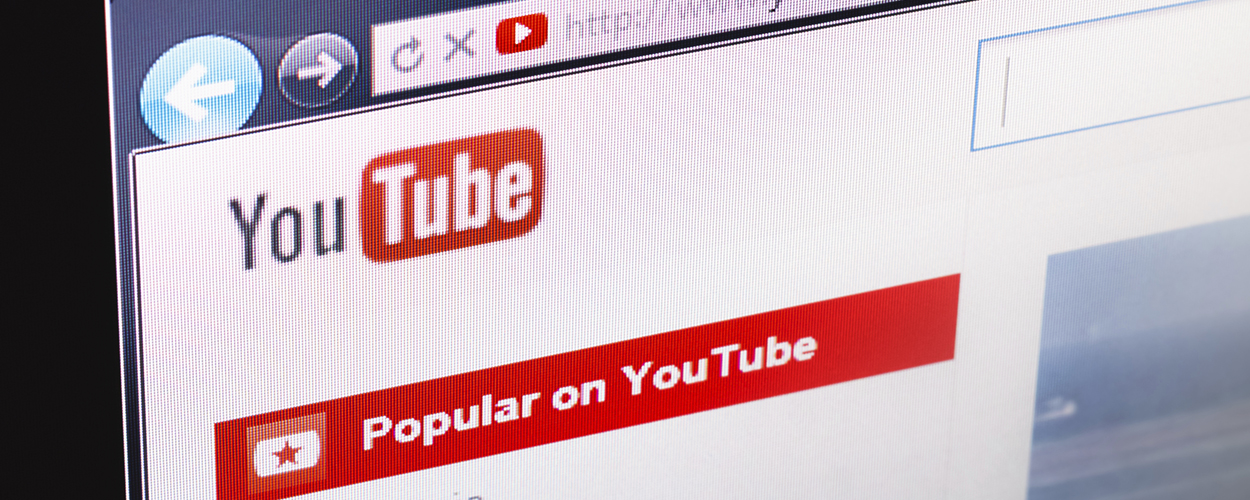This website uses cookies so that we can provide you with the best user experience possible. Cookie information is stored in your browser and performs functions such as recognising you when you return to our website and helping our team to understand which sections of the website you find most interesting and useful.
Business News Digital Industry People Labels & Publishers Top Stories
Big name artists sign open letter against safe harbours
By Chris Cooke | Published on Tuesday 21 June 2016

The war of words against YouTube continues unabated, with veteran artist manager Irving Azoff – an early advocate of public YouTube dissing and a leading voice in the US music industry’s most recent campaign against the video site – running an open letter in a number of Washington-based magazines signed by no less than 180 big name artists.
The letter, also endorsed by nineteen music companies and organisations, again calls for lawmakers to reform the safe harbour rules in US copyright law which allow YouTube to operate an opt-out rather than opt-in streaming service. Echoing an artist-backed correspondence previously submitted to the US Copyright Office’s review of safe harbours, the open letter begins: “As songwriters and artists who are a vital contributing force to the US and to American exports around the world, we are writing to express our concern about the ability of the next generation of creators to earn a living”.
It goes on: “The existing laws threaten the continued viability of songwriters and recording artists to survive from the creation of music. Aspiring creators shouldn’t have to decide between making music and making a living. Please protect them. One of the biggest problems confronting songwriters and recording artists today is the Digital Millennium Copyright Act. This law was written and passed in an era that is technologically out-of-date compared to the era in which we live”.
“It has allowed major tech companies to grow and generate huge profits by creating ease of use for consumers to carry almost every recorded song in history in their pocket via a smartphone, while songwriters’ and artists’ earnings continue to diminish. Music consumption has skyrocketed, but the monies earned by individual writers and artists for that consumption has plummeted”.
“The DMCA simply doesn’t work. It’s impossible for tens of thousands of individual songwriters and artists to muster the resources necessary to comply with its application. The tech companies who benefit from the DMCA today were not the intended protectorate when it was signed into law nearly two decades ago. We ask you to enact sensible reform that balances the interests of creators with the interests of the companies who exploit music for their financial enrichment. It’s only then that consumers will truly benefit”.
Of course, since the US industry joined its European counterpart in lobbying hard for safe harbour reform earlier this year, a plethora of artists have stepped forward in one form or another to voice their concerns about safe harbours and YouTube, partly in a bid to confirm that they back the labels on this one.
Although most of those celebrity critics to date have been successful heritage artists insisting they are speaking up for struggling new talent. But that approach – while grabbing headlines – comes with risks, because arguably YouTube, while not working at all for veteran acts, has its upsides for newer talent. New artists – while not necessarily happy about the royalties they earn via the Google-owned platform – nevertheless recognise the marketing benefits. Which possibly enables YouTube to turn around to lawmakers and say “these old guys all claim to speaking for the young creators, but look at all the young creators who love working with us”.
The new letter is signed by some more contemporary acts, Taylor Swift being perhaps most notable, while Deadmau5, Pharrell, Lady Gaga, Kip Moore and Omi are also among the signatories. Though even most of them pre-date the era when YouTube was quite so significant in building a fanbase for new artists, and the whole campaign could probably benefit from the backing of some of those acts who, in one way or another, launched themselves via the video sharing platform.
Nevertheless, it’s another high profile assault on the YouTubes. And – while sources in both Brussels and Washington remain pessimistic about there being any speedy reform of safe harbour rules in a way that would actually help the music industry in its licensing battles with YouTube – Azoff’s starry letter will further increase the PR pressure on Google, which may or may not have a more immediate impact.
In the meantime, don’t forget there’s a big fat summary of the music industry’s tortuous relationship with YouTube to date in this CMU Trends report. And Azoff has tweeted his letter here.





